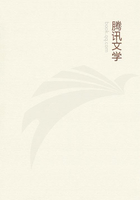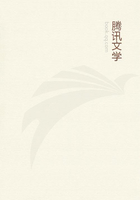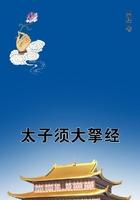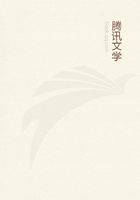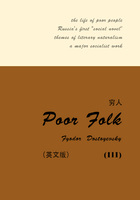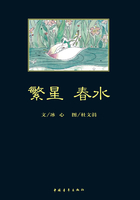余童冠读书,粗能强记一二,至闻先生长者绪言余论,虽旷日累月,犹在负剑辟珥时也。今老,神志衰耗,前后遗忘,闲者追念旧闻,十亡八九。因窃自慨,炎暑友朋畏热,绝不往来。藜床北牖,呓呻吟,儿辈濡笔录之,得数千言,虽卑污庸俗,可厌可鄙,然疑疑信信,实区盖之谈,殆与玉扈亡当者异也。先儒有《笔记》、有《漫录》、有《燕语》,为书不一,皆义出《六经》,事兼百代,究帝王之则,启圣贤之蕴。余之缪学杂举,胪传风听,何能进于是?不过从儿辈咕嗫而已。虽然,讵不胜于饱食终日,无所用心,而从事于博弈者乎。序而藏之,因命曰《佩韦斋辑闻》,嗣有所得,又将续书,太玉山人俞德邻宗大父。
同类推荐
热门推荐
Poor Folk(III)穷人(英文版)
Poor Folk is the first novel by Fyodor Dostoyevsky, written over the span of nine months between 1844 and 1845. Inspired by the works of Gogol, Pushkin, and Karamzin, as well as English and French authors, Poor Folk is written in the form of letters between the two main characters, Makar Devushkin and Varvara Dobroselova, who are poor second cousins. The novel showcases the life of poor people, their relationship with rich people, and poverty in general, all common themes of literary naturalism. A deep but odd friendship develops between them until Dobroselova loses her interest in literature, and later in communicating with Devushkin after a rich widower Mr. Bykov proposes to her. While Vissarion Belinsky dubbed the novel Russia's first "social novel" and Alexander Herzen called it a major socialist work, other critics detected parody and satire.

